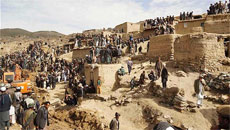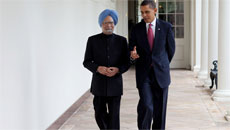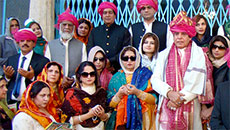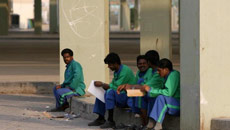What attracts us to mythology? Is it the human fascination for tales, particularly those personifying natural phenomenon, or explaining the creation of the world and humankind in a way that is easily understood and without going into the big bang theory and evolution?
Old myths die hard and some never do, persisting in our consciousness - or rather, collective unconscious as per psychologist Jung - and frequently find cultural expression. And they turn out to be popular far beyond where they originally flourished. The Graeco-Roman pantheon can be a good example.
Zeus/Jupiter, his siblings and progeny have appeared in or inspired various cultural forms: epics, paintings, poetry, drama, comics (Wonder Woman), films, philosophy - Nietzsche's Apollonian/Dionysian dichotomy - or even language (bacchanalian, herculean, odyssey, Midas touch and the like) through the ages.
Giving the gods of Olympus a new lease of life, certain authors have featured them in urban fantasies, bringing them into the cities of the world we live in, with some spectacular results.
American writer James Thorne Smith was the pioneer.
In "The Night Life of the Gods" (1931), a quirky inventor crafts a device that can turn living matter into stone and back. Testing it, he meets a centuries-old leprechaun who teaches him to accomplish the reverse. They then break into New York's Metropolitan Museum of Arts and try it on some impressive statues of Roman gods.
Chaos results as the newly-enlivened deities stride the metropolis - Mercury, also the god of thieves, proves to be an adroit pickpocket while Neptune creates havoc in a fish market before order is restored.
Parodying aspects of mythology, history or literature or using them as a theme in innovative but humorous ways, British novelist Tom Holt has focussed on Norse legends, characters like Arthur, Beowulf and Faust, as well as those from the Arabian Nights, fairy tales made famous by the Brothers Grimm and cult films. And, of course, the Greek myths.
"Ye Gods" (1992) gives an entire new spin to the man vs gods saga through a clash between megalomaniac Zeus and his human son Jason (a splendid parody of Heracles/Hercules) with the fate of mankind in balance. Adding to the divinely funny goings-on, there is the first joke, a chilling depiction of a world without laughter besides some savagely funny observations on reality shows and the advertising business.
Holt returns to the Greek gods in "Odds and Gods" (1995) but here, they are merely among assorted pantheons from across the world living in a retirement home somewhere in London and trying to escape their authoritarian housekeeper-minder.
"Gods Behaving Badly" (2007), by British author Marie Phillips, sees the 12 Olympian gods as well as Eros (the god of love) living in a suburban flat in London as their powers have waned.

Aphrodite, the goddess of love, now has a phone sex business, Artemis, the goddess of the wild, is a dog-walker, Apollo has a TV fortune-telling show and Dionysus, the god of wine, now runs a nightclub. Trouble ensues for two mortals whose destinies get entwined with them before all is satisfactorily resolved.
But it is Richard Russell 'Rick' Riordan's Percy Jackson series, as well as the later Heroes of Olympus cycle, that bring all aspects of Graeco-Roman mythology into the modern world most fully.
The books have an interesting origin. Riordan used to tell his son Haley, diagnosed with attention deficit hyperactivity disorder and dyslexia, stories from Greek mythology at bedtime. When he ran out of matter, his son suggested he invent fresh ones using existing and new characters and thus was born the saga.
A troubled child unable to stick in any school, Percy finds out he is a demigod - the son of ocean god Poseidon, no less - and is brought to a camp near New York for others like him. There he makes the acquaintance of Annabeth Chase (daughter of wisdom goddess Athena) who accompanies him on various quests as they prevent the Titans (whom Zeus and his siblings had overthrown) from regaining power and uprooting life as we know it.
The stories are told in "The Lightning Thief" (2005), "The Sea of Monsters" (2006), "The Titan's Curse" (2007), "The Battle of the Labyrinth" (2008), and "The Last Olympian" (2009). The first two have also been made into films.

The second cycle introduces the gods' Roman personas as well as a similar camp on the West Coast for their half-human progeny. The two sides - Greek and Roman - must set aside their historical mistrust to jointly combat a fresh danger to their civilization from gods even older than the Titans and more destructive.
Beginning with "The Lost Hero" (2010), "The Son of Neptune" (2011)", "The Mark of Athena" (2012) and "The House of Hades" (2013) the story has reached a crescendo and how it will end will be known in "The Blood of Olympus", due this October.





